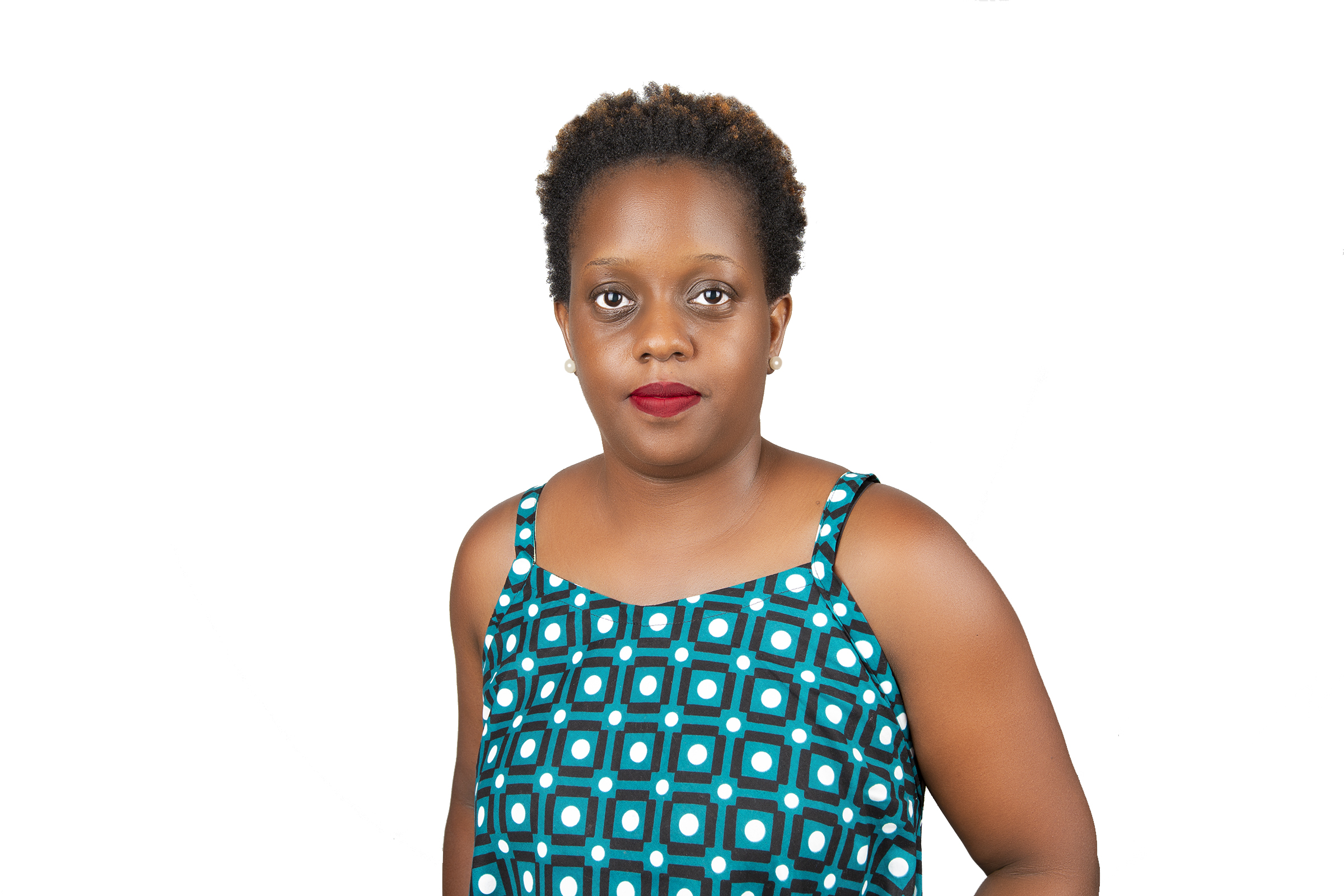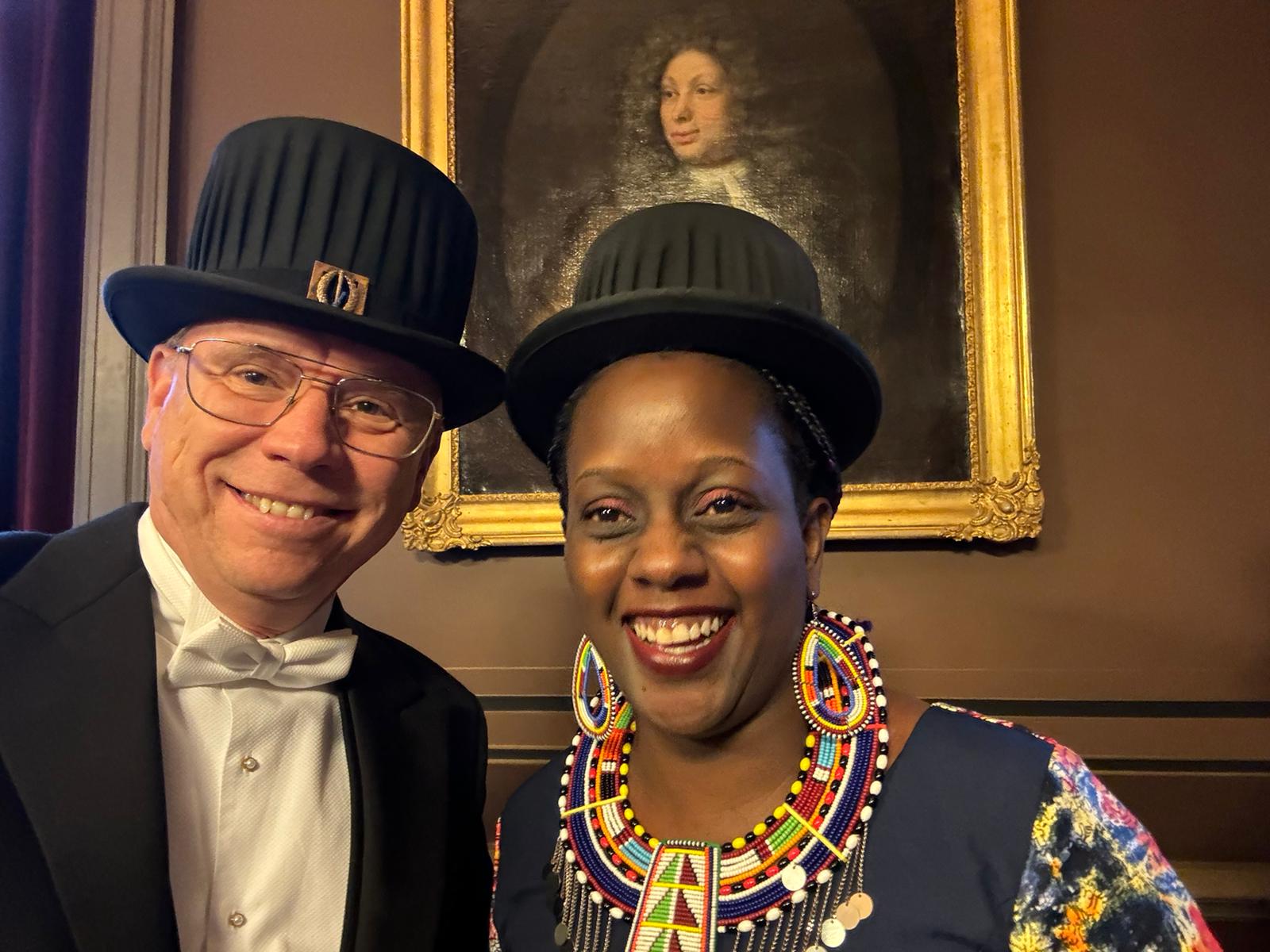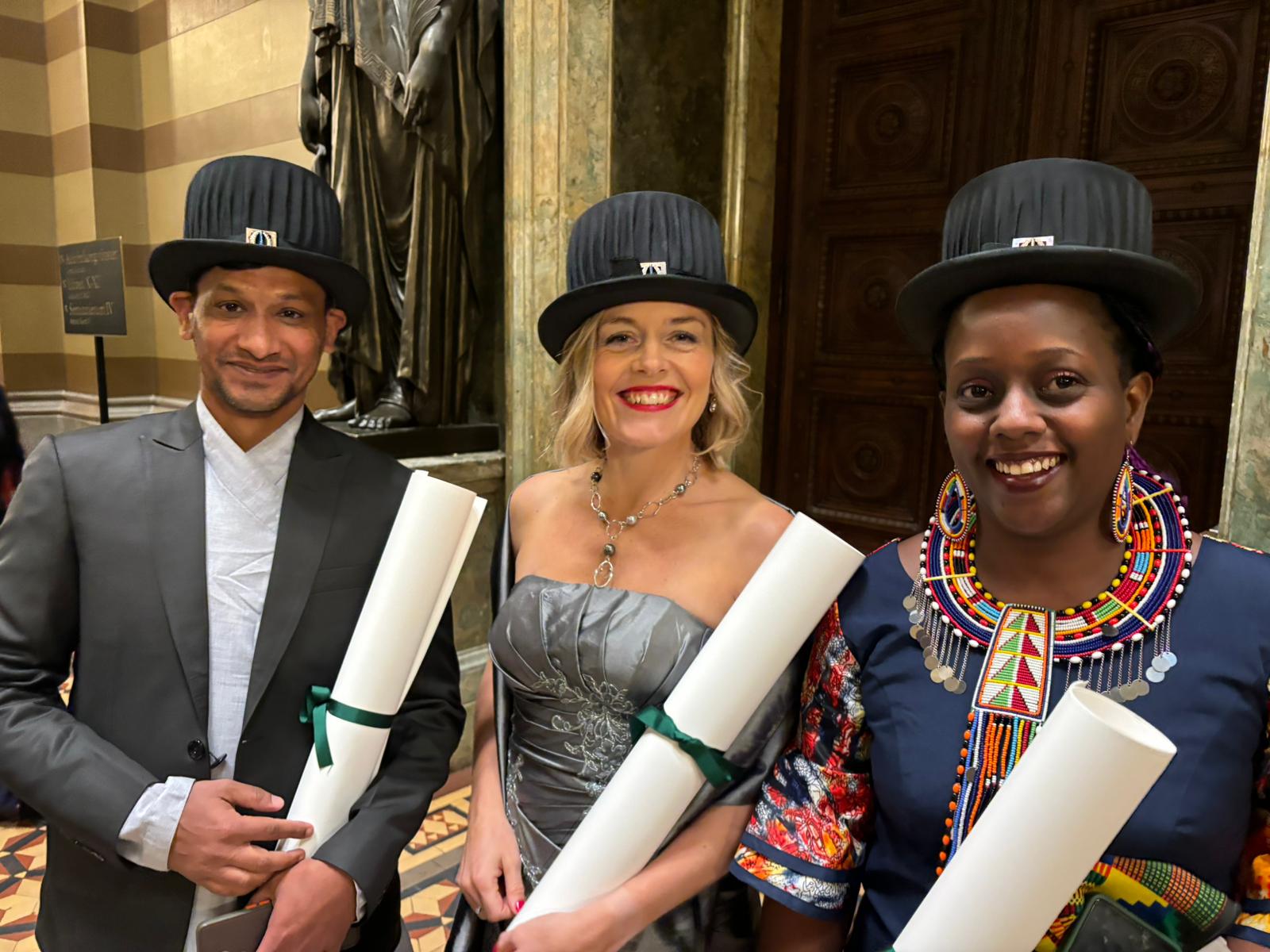
Doris Kambugiryo Kwesiga, on Monday January 29, 2024 will graduate with a Doctor of Philosophy (Ph.D.) in Public Health of Makerere University during the #Mak74thGrad ceremony held at the ceremonial grounds -Freedom Square.
Now, Dr. Kwesiga, a devoted maternal and newborn health researcher in MakSPH’s Department of Health Policy Planning and Management (HPPM) says her motivation to investigate the often-overlooked issue of underreported pregnancy and adverse outcomes in low- and middle-income countries was from her experience in maternal and newborn health where she noticed a significant gap between the actual occurrences of pregnancy loss and official reports. Despite statisticians acknowledging the underreported numbers, the reasons behind this discrepancy remained elusive.
In her thesis, "Exploring the underreporting of pregnancy and adverse pregnancy outcomes in population and health surveys: a multi-country qualitative study," Dr. Kwesiga, with a social science background, saw an opportunity to investigate why people were hesitant to disclose pregnancies and losses.
“I had been working in the area of maternal and newborn health for a few years and thus learned that while many babies were dying and women were losing pregnancies, many of these losses were not reported officially. This topic is really part of daily real-life situations that we encounter in Uganda / Africa. Everyone knows somebody who has suffered a stillbirth or lost a baby,” Dr. Kwesiga emphasized.

Five countries were included, with one Health and Demographic Surveillance System (HDSS) site as the study area in each country. The study took place in Iganga Mayuge HDSS in Uganda, Dabat HDSS in Ethiopia, Kintampo HDSS in Ghana, Bandim HDSS in Guinea Bissau and Matlab HDSS in Bangladesh.
These diverse locales reflect a range of low- and middle-income countries, extending from East Africa to West Africa and Asia. Dr. Kwesiga notes that these are useful places to learn about cultural differences and attitudes around pregnancy and its unfavorable consequences, such as stillbirths, miscarriages, infant deaths, and pregnancy termination.
“What is most interesting though is that actually many of the findings were similar in these five countries. I guess at the end of the day, regardless of where we live, some things about human beings and our beliefs are fundamentally the same!” she notes.
Having been actively engaged in research for over a decade, Dr. Kwesiga's prior experiences shaped her approach to address the challenges of underreporting. She notes that accurate data plays a critical role in planning, policymaking, and service delivery.
“If a problem in society is hidden, then it shall not be planned for and citizens will continue to suffer. If a woman gets pregnant, loses the pregnancy or baby and just goes home to attempt to continue life as before, without knowing why the loss happened in the first place, then the cycle will just be repeated and yet it could have been avoided,” she says.
As a qualitative researcher, Dr. Kwesiga advises that researchers need to receive adequate training to be able to not only know how to ask which questions but to have empathy while conducting interviews, if quality and accurate data is to be obtained.
According to her, it is critical to focus on the human stories behind statistics in order to amplify the voices and personal experiences of women, men, and interviewers involved in fieldwork.
“I recommend providing some training to interviewers on handling bereaved respondents, because when the respondent is treated well, they shall be calm enough to share. I also highlight the need to have clear translations of key terms like stillbirth or miscarriage in the local language so that respondents know what you are asking about. Additionally, I emphasize the need to provide some health education innovatively to respondents who have suffered loss. As researchers we should not just extract information but also provide benefits,” says Dr. Kwesiga.
According to her in public health, more attention was always given to numbers, with much less focus on the human beings behind those statistics. “I made an intentional choice to address challenges of under reporting from the perspectives of women and men in the communities and interviewers who participate in field work, using a qualitative approach. I preferred to highlight these voices and their personal experiences.”
Her research found that methodological issues, community and contextual variables, and individual characteristics are the three main barriers to reporting pregnancy and unfavorable outcomes in demographic and health surveys.
Community barriers comprised socio-cultural factors encouraging silence, including stigma and fearing witchcraft. “Women who suffer multiple losses can also be blamed so in such cases, one will not report. Another aspect is that some of these babies in communities are not seen as “real people”. I remember one respondent who said that the baby she miscarried was just like a piece of flesh (forgive the graphical example). So, if the baby isn’t considered as fully human, when an interviewer comes to ask, then the mother will say she has never lost a baby,” Dr. Kwesiga.
Reporting was also influenced by methodological challenges including question framing and incorrect definitions but interviewers’ skills like empathy were beneficial.
“Where an interviewer was able to build rapport with respondents, probe, show empathy, then the respondent opened up and reported accurately and vice versa. Another example is that where the questions in the tool included terms that were unclear to the respondent (e.g. definitions of stillbirth or miscarriage differ between the medical and the local language), or if questions were long and had many parts, then the respondent could easily not understand and thus share wrong information.”
Individually, adverse pregnancy outcomes (APOs) caused negative psychosocial effects like depression. Nevertheless, some respondents felt better after interviews and many participated hoping for health education.
“Expectedly, both women and men suffer from shock, depression, guilt, shame, envy of other people with children, regret, fear of never having another child, withdrawal from society, suicidal intentions and many other mostly harmful reactions. The implication is that a grieving person is often unable to easily share details about loss so during an interview they are crying or can’t talk and we experienced this a lot in the field. This leads to under reporting. In fact, some women will just lie and say they never had a loss because they don’t want to resurrect those bad memories,” observes Dr. Kwesiga.
Reflecting on her Ph.D. journey, Dr. Kwesiga acknowledged facing numerous challenges, including the loss of a scholarship and disruptions caused by the COVID-19 pandemic. Balancing pregnancy, motherhood, and academic pursuits presented additional hurdles. “I think the major reason I finished is because I knew why I started a PhD and what I hoped to gain from it so I somehow bounced back. I have learned that a PhD is really more about focus, interest in your own topic and a good dose of resilience. That aside, I had great support systems from my supervisors, family and God.”
Pregnancy, in the eyes of Dr. Doris Kwesiga, sets the solid basis for good physical and mental health throughout life. She underscored the important role of healthy pregnancies as establishing a foundation for better public health outcomes.
“Our lives follow this continuum from birth, to childhood, adolescence, youth, adulthood and old age. Once you have a good start right from pregnancy, then you are likely to be more healthy physically and mentally even as an adult. But also to have a healthy pregnancy requires a mother in good physical and mental health. So, it all ties in together – better public health requires healthy pregnancies, healthy adolescents as future mothers….and the cycle continues.”
On the whole, Dr. Kwesiga highlights weaknesses in surveys like DHS and recommends improving measurement through precise questions, enhanced interviewer training, integrated counseling, and health education. Critical elements include supportive policies for reporting and public awareness campaigns.
Her PhD was nested within the EN-INDEPTH survey, where she worked with organized teams, enjoying a five-year collaboration, “I found the process smoother with mentorship from the principal investigators and the project leadership. I also learned the value of patience and humility in adapting to diverse approaches. Leading the qualitative group, I gained insights into analysis techniques from experienced team members in other countries.”
Her PhD is part of a joint award offered by Makerere University, Uganda and Uppsala University, Sweden with funding from the Children’s Investment Fund Foundation (CIFF).

Reflecting on the journey, she expressed that the program took longer than anticipated, acknowledging initial expectations of a three-year course that did not materialize. “I am so grateful and honored to be the first such candidate on the Uppsala side, in the faculty of Medicine and Pharmacy. I actually had my graduation in Uppsala on 26th January 2024. I am very grateful for the exposure of studying in two great Universities.
Dr. Kwesiga expresses her appreciation to her family, the research teams, the administrative staff, supervisors, and the participants in the study.
“Special thanks go to my supervisors: Makerere appointed supervisors were Assoc. Prof. Peter Waiswa and Prof. Christopher Garimoi Orach (Makerere) and Assoc. Prof. Hannah Blencowe (From LSHTM). Uppsala appointed supervisors were Prof. Mats Malqvist and Assoc. Prof. Leif Eriksson.
I am eternally grateful to Prof. Joy Lawn, the P.I of the EN-INDEPTH project, the entire study team, research assistants, administrative teams both in Makerere and Uppsala, MakSPH PhD forum, my colleagues and very notably, my family.
Most importantly, I am thankful to the respondents who graciously participated in this study. To all the babies whose deaths may have seemingly been invisible to the world, I hope that this work contributes in improving measurements and counting every pregnancy and every birth, to ensure positive pregnancy outcomes,” says Dr. Doris Kwesiga.
Congratulations!
Written by Davidson Ndyabahika

